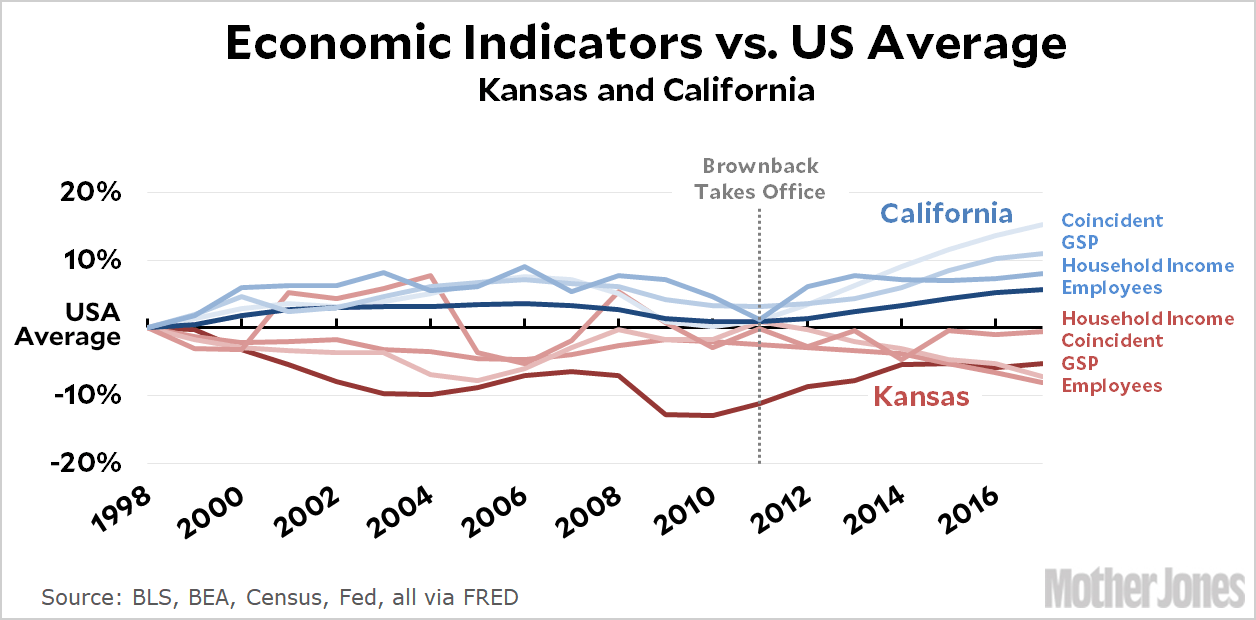Here’s a nice, busy, colorful chart for you:

Paul Krugman was tweeting about Kansas this morning, and now that Sam Brownback’s tenure as governor is over and we have pretty complete economic indicators for his entire disastrous governorship, I figured it was time to take a final look. I included California as a comparison since it’s a big fat liberal state that should be failing grievously, and then chose four good economic series. Everything starts in 1998 so you can get a good look at what the trends looked like before 2011, and they’re all shown in comparison to the US average. So how did Kansas do?
- Median household income: It dropped during Brownback’s first few years but then picked up a bit, ending with approximately zero growth.
- Coincident economic activity: This is an overall gauge of a state’s economy. It rose for the first three years Brownback was governor, but then withered and ended up 5 percent below the average US level.
- Gross state product: Fell during Brownback’s entire governorship, ending 7 percent below the US average.
- Total workforce: Ditto, ending 8 percent below the US average.
During this same time, California grew faster than the US average on every economic indicator. I don’t know how that’s possible given all our taxes and regulations and environmental voodoo, but somehow we did.
But this is not the most remarkable part of all this. The most remarkable part is that Kansans are now holding another election and the Republican candidate is Kris Kobach—who is not only odious in his own right, but is also basically a Brownback clone. Right now the polls are neck-and-neck, and there’s a good chance Kobach will win. It just goes to show the power of Republican economic thought in certain parts of the country. Even after Sam Brownback spent eight years nearly destroying their state with his “great experiment,” it’s entirely likely that Kansans will elect a man who plans to do pretty much the same thing. I guess they just don’t like economic growth very much in Kansas.


















